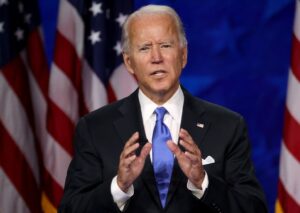US Treasury Secretary Janet Yellen will pay a three-day visit to China beginning July 6 as the two superpowers grapple with geopolitical turmoil, a bilateral trade dispute, and political distrust. Yellen’s trip to the world’s second-largest economy comes as President Joe Biden attempts to stabilize the relationship before conditions spiral out of control. But if Secretary of State Antony Blinken failed to achieve anything substantive, what chance will there be of diplomatic success with the Lady from Brooklyn at the helm?
What Will Janet Yellen Talk About?
Ahead of her trip overseas, the Treasury Department confirmed that Yellen held a “frank and productive discussion” with Xie Feng, China’s ambassador to the United States. The talk covered several topics, particularly global and bilateral issues pertaining to trade. The ambassador requested the White House take action to resolve the issues plaguing both sides so leaders can mitigate political differences and strengthen dialogue.
When the trip was announced, it was anticipated that US officials would highlight concerns surrounding a new Chinese counterespionage law. Reports also suggested that Yellen would reiterate America’s support for human rights and champion the country’s national security interests. But there have been plenty of new developments since the itinerary was put together.
During Janet Yellen’s powwow with her counterparts, the hot topic ostensibly will be trade. The Ministry of Commerce recently announced that the Chinese government would install export controls on gallium and germanium, two critical rare earth metals necessary for manufacturing electric vehicles, solar panels, and wind turbines. Beijing is implementing these export controls on Aug. 2 with the objective of “safeguarding national security and interests.”
In addition, there should be further confirmation of the US government retaliating against this export ban by restricting Chinese access to cloud-computing services provided by Amazon and Microsoft. The Wall Street Journal reported that Washington was considering tit-for-tat retaliation by requiring US firms to seek permission to allow Chinese customers access to cloud services using advanced artificial intelligence chips.

Joe Biden (Photo by Win McNamee/Getty Images)
New reports suggest that President Joe Biden and other administration officials do not expect significant breakthroughs. It did not help that Biden referred to President Xi Jinping as a “dictator.” Whatever the case, US-China relations are on a downward spiral, and many political experts are penciling in further tit-for-tat retaliatory measures involving additional export controls, restrictions, and prohibitions. But with China planning to develop its own semiconductor supply chain, it remains to be seen if this would be a one-sided battle.
Who Needs Whom?
Does the United States still need China? Does Beijing need Washington? Who has the upper hand in US-China relations? Years ago, the answer would have been that the United States possessed much of the leverage. However, a lot has changed since Russia invaded Ukraine and exposed the international community. Over the last 18 months, China has been fostering a regional approach to global domination. In this span, Beijing has undermined the US regime and reduced China’s dependence on and vulnerability to the West:
- Bolstered yuan-denominated cross-border trade.
- Expanded the Cross-Border Interbank Payment System (CIPS).
- Grew the BRICS (Brazil, Russian, India, China, and South Africa) bloc influence.
- Added more gold to its foreign reserves.
- Diminished holdings of US Treasury securities.
- Negotiated several key economic and diplomatic agreements.
Ultimately, when the United States makes official state visits to China, political observers begin to wonder if Washington is far more desperate to appease Beijing. Like Biden visiting Saudi Arabia with hat in hand to ask it to drill for more crude oil, Janet Yellen will play this role and continue the trend of the past year, spotlighting the fact that the United States essentially has the weaker hand in its relationship with the Chinese Communist Party. If China can successfully become self-sufficient in the world of chips, then perhaps say goodbye to US hegemony and roll out the red carpet for the Red Dragon.
All opinions expressed are those of the author and do not necessarily represent those of Liberty Nation.
Do you have an opinion about this article? We’d love to hear it! If you send your comments to [email protected], we might even publish your edited remarks in our new feature, LN Readers Speak Out. Remember to include the title of the article along with your name, city, and state.
Please respect our republishing guidelines. Republication permission does not equal site endorsement. Click here

